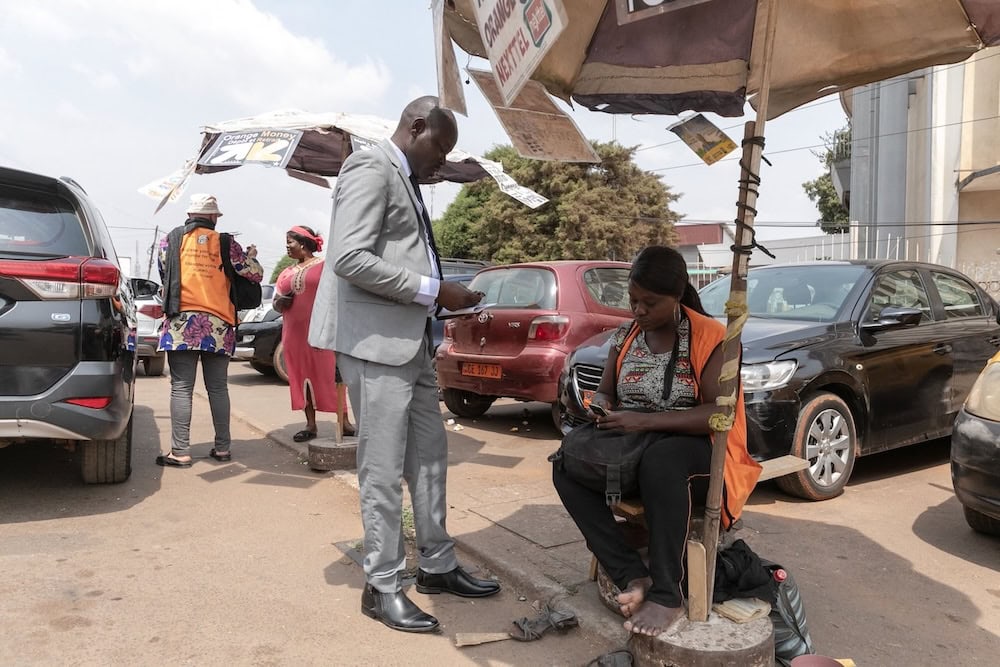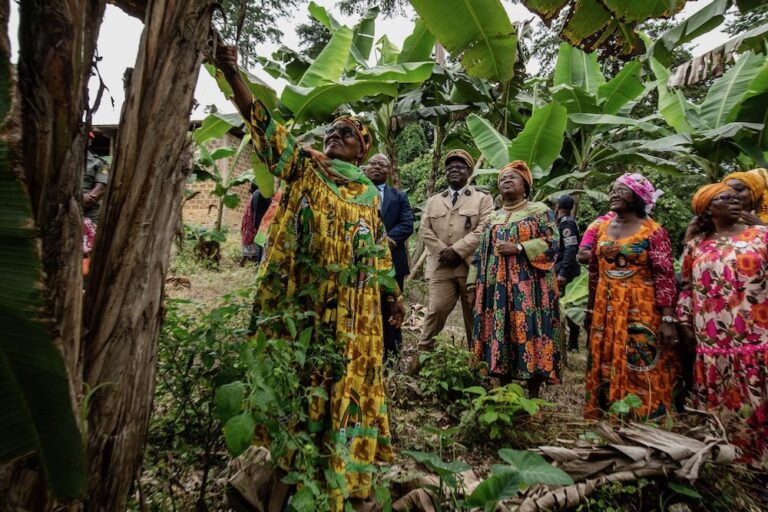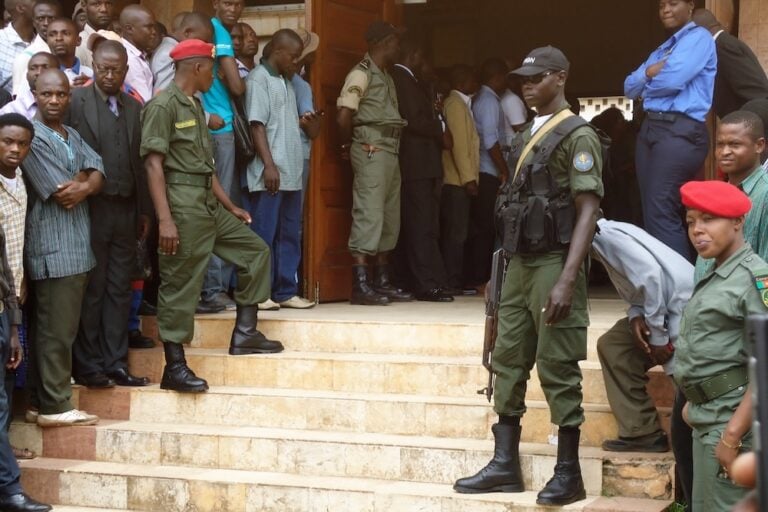Cameroon's attempt to curb mis/disinformation through legal means is resulting in a complex legal framework that raises concerns for freedom of expression.
This statement was originally published on cipesa.org on 20 September 2024.
Cameroon’s upcoming presidential election in 2025 is likely to be dogged by rising disinformation. The government’s weaponisation of laws against false news further exacerbates the issue and raises more concerns regarding a smooth electoral process. In that light, the Collaboration on International ICT Policy on East and Southern Africa (CIPESA) and ADISI-Cameroun organised a two-days’ workshop to equip key players with the tools necessary to combat disinformation, promote democratic practices online, and safeguard electoral integrity in Cameroon.
The porous boundary between regulation and repression
Cameroon’s efforts to combat disinformation have led to a complex legal framework that raises concerns for freedom of expression. Laws like the Cybersecurity and Cybercrime Law N°2010/012 of 21 December 2010 and Law N°2016/007 of 12 July 2016 on the Penal Code contain broad provisions criminalising the dissemination of false information. Article 78 of the Cybersecurity and Cybercrime Law, and Articles 113 and 240 of the Penal Code, impose fines and imprisonment on those found guilty of spreading false news that could harm public authorities or national unity.
While these laws aim to protect public order, they are often criticised for being vague and disproportionate. This is because they have been used to suppress critical voices, targeting journalists, activists, and whistleblowers. The penalties for violating the laws can be harsh as they include hefty fines and imprisonment. As such, these provisions can be used to stifle legitimate dissent and undermine democratic principles.
Civil society organisations (CSOs) and media watchdogs play a critical role in monitoring disinformation and advocating for media literacy and transparency, but they often face restrictions and censorship. Journalists are often arbitrarily arrested and detained for “spreading false news”, while media outlets and CSOs are usually intimidated for publishing “false” reports about the government.
In addition, while efforts by various stakeholders to regulate digital platforms are underway, they struggle to keep pace with rapidly evolving technology platforms. These platforms are the primary channels through which disinformation spreads in Cameroon, and the government’s approach to mitigate their effect reverberates on media freedom and democratic expression, as it often intersects with broader issues of political repression.
A critical rise and complexification of disinformation
The workshop hosted by CIPESA and ADISI-Cameroun highlighted the alarming rise of disinformation in Cameroon. During the plenary session, speakers discussed the main trends observed on disinformation in Cameroon. These include political polarisation and partisan disinformation, ethnic and tribal manipulation, disinformation on electoral processes, and foreign influence or disinformation by external actors. Disinformation appears to take different forms, including false information, decontextualised content and misleading information. The disinformation propagators include political actors, partisan and underground media and journalists, influencers and foreign actors. Targets of disinformation include opinion leaders, ethnic groups and various institutions.
Paul Joel Kamtchang, the ADISI-Cameroon head, emphasised the role of post-electoral crises and security challenges in exacerbating disinformation, building on “Talk-Paix” regional meetings. He noted how political factions and interest groups spread false narratives to discredit opponents and influence public opinion. Social media platforms are rife with fabricated content that targets voters’ opinions and creates confusion about electoral candidates.
Disinformation actors often exploit ethnic and regional identities to sow division and exacerbate existing tensions. False claims and inflammatory content targeting specific ethnic or regional groups further deepen societal rifts and incite violence, threatening national unity and peace. Ethnic slurs are used to tribalise public debate and polarise political discourse in both mainstream and social media.
Dr. Roméo Saa Ngouana, Senior Researcher at the African Center for International, Diplomatic, Economic and Strategic Studies (CEIDES), discussed the threat of increased disinformation ahead of the 2025 presidential elections. He observed that false accounts are being used to spread disinformation about opposition parties, potentially undermining the credibility of the electoral system. Additionally, foreign influence operations are contributing to the complexity of the disinformation landscape, with actors exploiting digital platforms to amplify divisive narratives and influence public perception. For instance, Cameroon is often targeted by “Coordinated Inauthentic Behaviour” on Meta platforms orchestrated by foreign actors, an indication of how foreign, often unidentified, players have set out to manipulate public opinion in the country on various topics.
Preventing and mitigating the effects of disinformation ahead of elections
After the plenary, practical sessions helped to develop a keener understanding of disinformation and explore its various trends in Cameroon in the lead up to the presidential elections. Participants split into two groups were asked to summarise the key trends of disinformation in Cameroon on the one hand, and to propose recommendations on the other hand.
The second day was dedicated to two main approaches identified as ways of preventing disinformation and mitigating its effects, to prepare for a safer media space during the electoral period. This was carried out as masterclasses on fact-checking for one group, and media and information literacy (MIL) training for the other group.
Led by Marthe Ndiang, Editor-in-Chief of Data-Check, the fact-checking masterclass aimed to get participants aware of the issues and challenges related to disinformation as the 2025 elections approach, sharpen critical thinking skills and equip the participants with tools to combat disinformation.
The MIL masterclass was given by Blaise Pascal Andzongo, President of Eduk Media. It aimed to address how young people are informed in the age of social media, information disorders, overcoming cognitive bias through critical thinking and strategies to combat disinformation through media and information literacy for and with young people.
Conclusion and recommendations
As Cameroon heads towards its next presidential election, disinformation presents a significant challenge to the integrity of the electoral process and the stability of the nation. The interplay between disinformation trends and the current regulatory environment highlights the need for targeted and balanced interventions.
Key recommendations to stakeholders:
- Strengthen legal frameworks and policy measures needed to combat disinformation without encroaching on freedom of expression;
- Enhance media literacy and public awareness by integrating them into educational curricula and public outreach campaigns;
- Support independent media and civil society by protecting journalists from harassment and providing resources for investigative journalism and fact-checking initiatives;
- Promote digital platform accountability with clearer guidelines for content removal, fact-checking partnerships, and transparency in algorithms that influence content visibility; and
- Foster dialogue and cooperation between the government, media, CSOs and platforms to build a coordinated response and ensure that measures against disinformation are effective and equitable.
In addition to these recommendations, the “Yaounde Declaration on Electoral Disinformation” was developed to address the threats posed by disinformation in Cameroon’s upcoming elections. It aims to raise awareness, promote media literacy, and support public education on these issues. The full declaration is available here.



